Digitizing Suzette: Exploring Girls’ Education in Belle Epoque France
For the past few years, John Westbrook has been working with Diane Jakacki and a team of student researchers (Annie Girton, Sarah Haber, and Rebecca Heintzelman) to digitize a best-selling reader, titled Suzette, used for girls’ education in belle-époque France. This textbook provides a rich source for understanding how tension between the intellectually egalitarian goals and socially conservative mores of the educational reformers of the Third Republic were translated into pedagogical practices in girls’ classrooms. Working from the teacher’s edition, The Suzette Project team has refined a coding schema that reflects how the national curriculum was transformed into a narrative that follows the intellectual, social, and moral growth of the young eponymous heroine. The final goal of The Suzette Project will be an online, bilingual, annotated version of the textbook accompanied by an evolving set of interpretive texts. This session, which took place on April 29, 2021, provides a brief overview of the project and its goals, followed by roundtable discussion with the Bucknell students about their experiences with the project.
Making & Collaborating: Student-Led Digital Humanities Projects at the Griot Institute
Each year the Griot Institute works closely with several undergraduate and one or two graduate students to build on past research projects and pursue new research endeavors. Learn from current Griot students as they present their projects. These projects include: the Bucknell Civil Rights Project, the Griot Institute Monthly Newsletter, the African Matrilineal Societies & African Girlhoods Projects, the Bucknell Black History Timeline, and the Antigua Sugar Mills Project. This event took place on Friday, April 9, 2021.
The Florentine Codex Project: A Decolonial Approach to Digital Editing
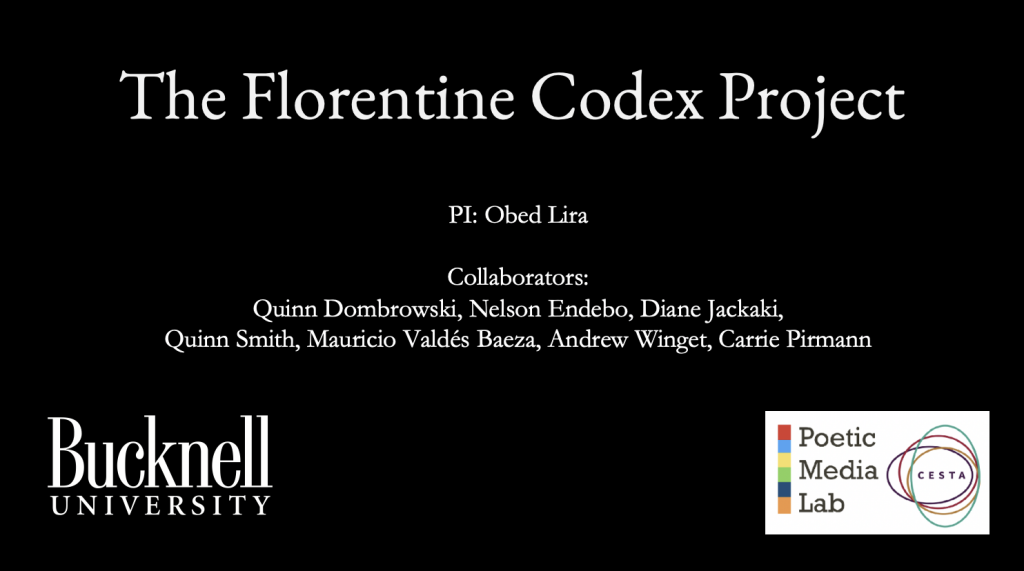
Dr. Obed Lira’s Florentine Codex Project 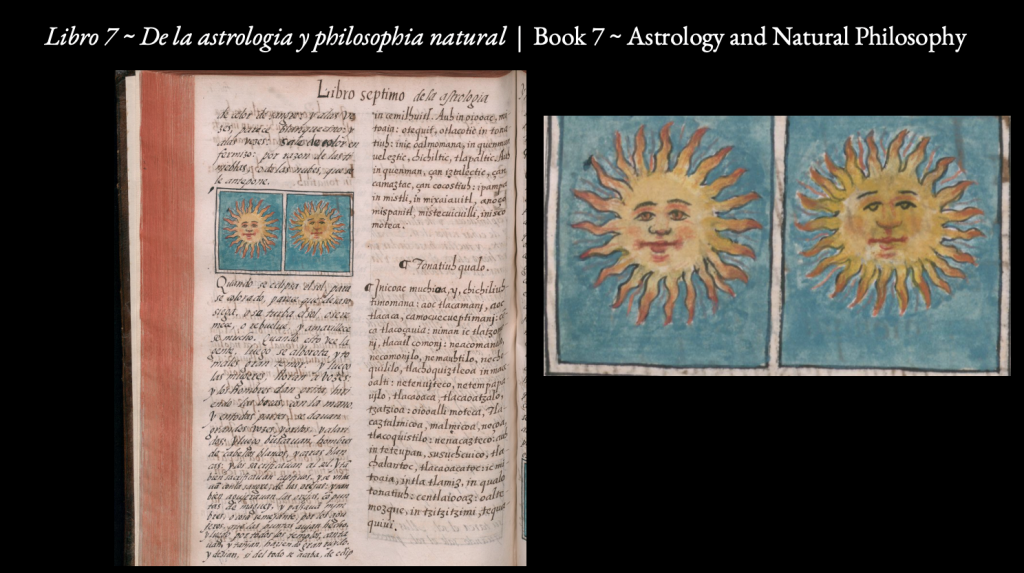
An image from The Florentine Codex
On Thursday, March 18, 2021, Dr. Obed Lira presented his ongoing Digital Humanities project, The Florentine Codex Project, which is a collaboration between researchers from Bucknell University and the Poetic Media Lab at Stanford University. The project is mainly focused on the creation of a digital edition of the monumental sixteenth-century work entitled Historia general de las cosas de Nueva España (General History of the Things of New Spain), also known as the Florentine Codex. This encyclopedic work—compiled over many years by a Franciscan friar and his native collaborators—sought to capture the language and culture of the indigenous Nahua peoples with the ultimate end of enhancing evangelization efforts. Dr. Lira’s talk introduced this important source and discussed some of the ways in which this digital project challenges current research paradigms around colonial documents of this kind, offering instead a decolonial approach to digital editing, and thus a decolonial approach to reading an ever-growing digital archive of colonial documents.
Mapping with the Humanities: Spatial Humanities, Cultural-Historical Understandings of Place, and the Dangers of Presentism
“Mapping with the Humanities: Spatial Humanities, Cultural-Historical Understandings of Place, and the Dangers of Presentism” took place on Monday, October 05, 2020, led by Dr. Diane Jakacki, Digital Scholarship Coordinator. This event entailed a presentation and discussion on how do digital humanists balance the need to analyze the complexities of place in cultural-historical contexts with the positivistic tools offered in geospatial data-driven mapping environments? In the talk Dr. Jakacki presented, a Mellon-funded DH research project, REED London, that aimed to analyze documentary evidence about London, its inhabitants, and the relationship of performance to the City’s developing identity from the Middle Ages through the Restoration.
Building Digital Ethics: Foregrounding Privacy and Ethics in Digital Humanities Projects
“Building Digital Ethics” took place on Sept. 14, 2020. Led by Christian Howard-Sukhil and Todd Suomela, this event entailed a presentation and discussion about navigating legal questions around privacy and its attendant ethical considerations in relation to Digital Humanities (DH) projects. “Building Digital Ethics” was part of the Fall 2020 HumLab Bytes event series.
Critical Playing Workshop
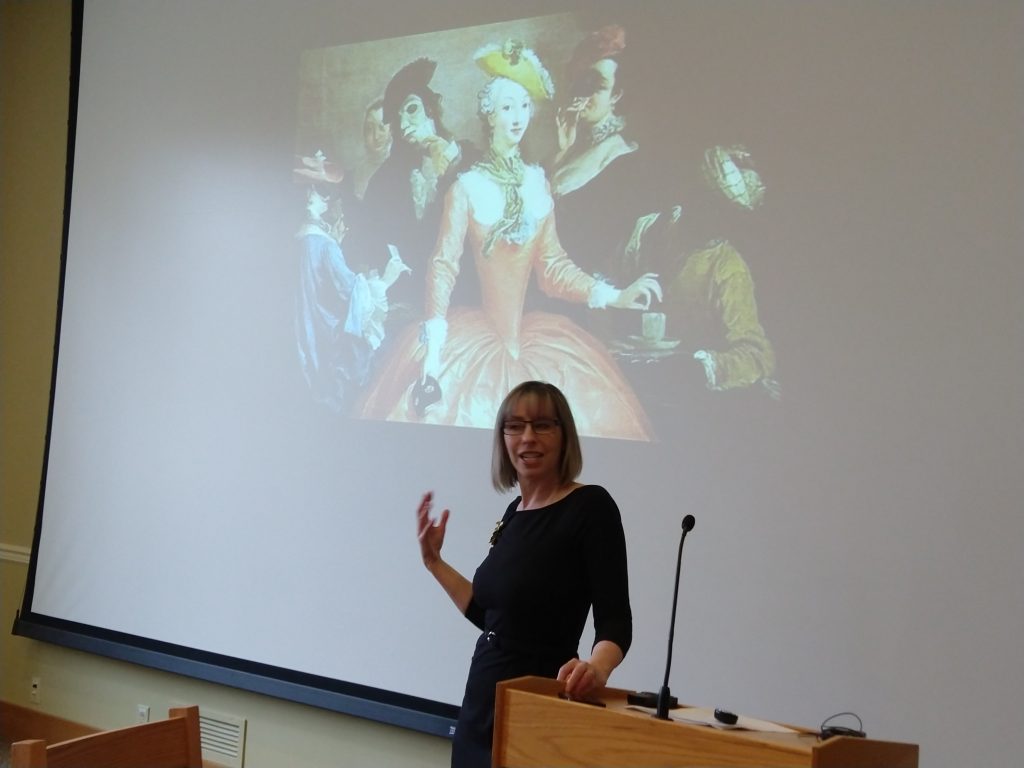
Prof. Ghislaine McDayter discusses formal wear in 18th century England 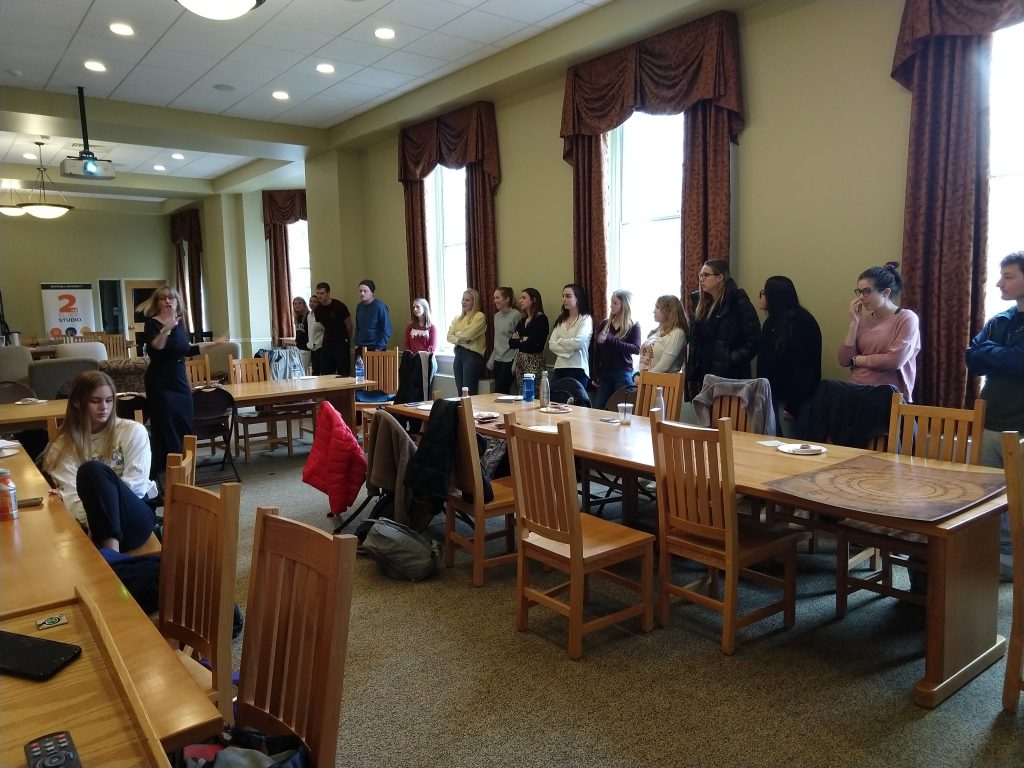
Prof. Ghislaine McDayter walks students through the nuances of proper behavior at an 18th century ball
On February 25, 2020, Professor Ghislaine McDayter from the Department of English led a workshop on “Critical Playing,” which included a discussion of how computer games can assist in the development of scholarship and learning. To learn more about the event, check out this blog post by Lielt Endashaw!
The Critical Playing Workshop was part of the ongoing event series called “HumLab Bytes.” HumLab Bytes events are designed to promote discussion and exploration of a given technology in relation to humanistic inquiry. These events are open to all faculty, staff, and students at Bucknell, as well as individuals in the surrounding communities.
Digital Humanities Showcase & Mixer
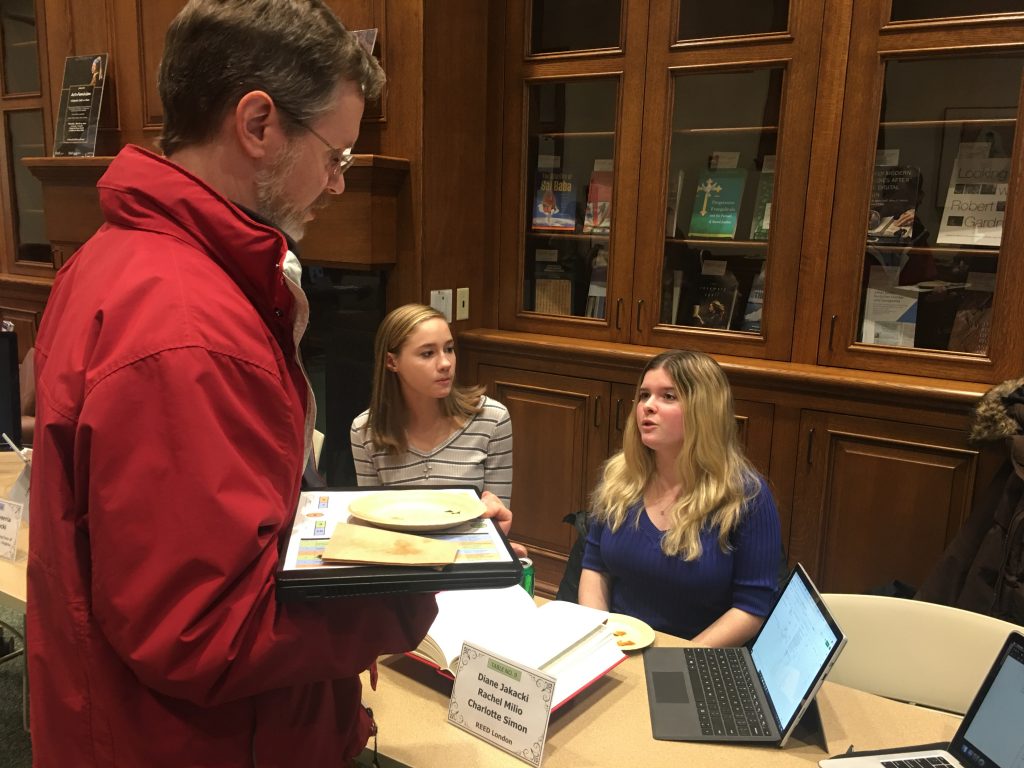
Students present their work at the DH Showcase and Mixer 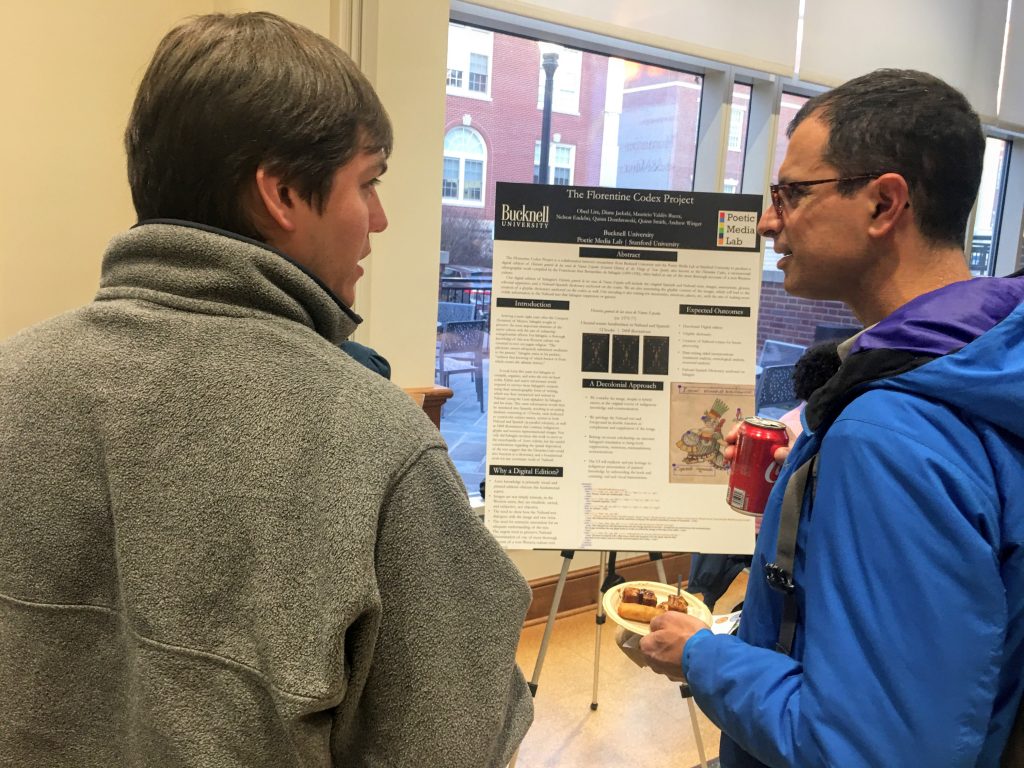
Faculty discuss their ongoing DH projects
The inaugural Digital Humanities (DH) Showcase and Mixer event was hosted on January 30, 2020 in the Bucknell Humanities Center. Twenty-one faculty, staff, and students from multiple departments and groups across campus presented their ongoing DH work, and there were representatives from Classics and Ancient Mediterranean Studies, Comparative and Digital Humanities, Digital Pedagogy and Scholarship, English, History, the Humanities Center, Library and Information Technology, the Place Studies Program, and Spanish. The event was well attended by individuals from all three colleges as well as various administrative groups on campus, including the Office of Sponsored Projects and the Provost’s Office.